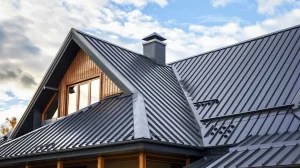Recent advancements in commercial HVAC systems are being driven by the integration of cast iron pumps. These pumps offer notable benefits, including enhanced durability and improved energy efficiency. If you’re considering the advantages of cast iron pumps, you’ll find that they are highly resistant to wear and corrosion, making them ideal for high-demand environments. As businesses seek sustainable solutions, the shift towards cast iron technology is prompting significant changes in operational practices. The implications for energy consumption and maintenance costs are substantial, raising questions about the future landscape of HVAC systems. What other transformations might this innovation bring?
Key Takeaways
- Cast iron pumps enhance energy efficiency in commercial HVAC systems, reducing energy consumption significantly while maintaining optimal performance.
- Their robust construction and superior thermal conductivity lead to lower operational costs and improved heat transfer efficiency.
- The resistance to corrosion and durability of cast iron pumps minimizes maintenance needs, resulting in long-term savings for businesses.
- Successful case studies show companies achieving up to 20% reduction in energy consumption through the implementation of cast iron pumps.
- The growing adoption of these pumps aligns with sustainability efforts, fostering a community commitment to energy-efficient practices.
The Growing Need for Efficient HVAC Systems in Commercial Spaces
As businesses expand and energy costs rise, the necessity for efficient HVAC systems in commercial spaces has become increasingly critical. These systems are not merely a luxury but an essential component for operational effectiveness, employee comfort, and energy conservation. Inefficient HVAC systems lead to increased energy consumption, driving up costs and negatively impacting the environment. As companies seek to enhance their sustainability efforts, the demand for advanced solutions grows. The integration of innovative technologies and materials, such as cast iron pumps, provides a pathway for improved performance and reliability. By investing in efficient HVAC systems, businesses not only foster a productive work environment but also align themselves with the broader movement towards energy efficiency and environmental responsibility, creating a sense of belonging within the community.
Key Features of Cast Iron Pumps
The integration of cast iron pumps into commercial HVAC systems offers significant advantages, particularly regarding durability and efficiency. Cast iron pumps are known for their robust construction, which allows them to withstand high pressures and temperatures, making them ideal for demanding environments. Their resistance to corrosion enhances longevity, reducing the need for frequent replacements. In addition, the thermal conductivity of cast iron aids in effective heat transfer, optimizing system performance. These pumps also exhibit superior vibration damping characteristics, leading to quieter operation, which is essential in commercial settings. Moreover, their relatively low maintenance requirements contribute to operational cost savings, reinforcing their value in the HVAC landscape. Overall, the key features of cast iron pumps position them as a reliable choice for modern commercial HVAC applications.
Advantages of Cast Iron Pumps Over Traditional Materials
While various materials have been used in pump construction, cast iron pumps stand out due to their superior performance and longevity in commercial HVAC systems. One significant advantage of cast iron pumps is their exceptional durability, which allows them to withstand harsh operating conditions and resist corrosion, unlike traditional materials such as plastic or aluminum. This resilience translates to lower maintenance costs and extended service life, fostering a sense of reliability within HVAC installations. Additionally, cast iron’s superior thermal conductivity enhances heat transfer efficiency, further optimizing system performance. As businesses increasingly seek dependable solutions, the advantages of cast iron pumps over traditional materials become pivotal in establishing operational efficacy and fostering a community that prioritizes sustainability and innovation in commercial HVAC practices.
Impact of Cast Iron Pumps on Energy Efficiency
Recognizing the essential role of energy efficiency in modern commercial HVAC systems, cast iron pumps have emerged as a transformative solution that greatly enhances overall performance. Their robust construction and superior thermal conductivity contribute to reduced energy consumption, allowing systems to operate at peak levels. Cast iron pumps demonstrate exceptional durability, which minimizes maintenance needs and downtime, further promoting energy savings. Additionally, their ability to maintain consistent flow rates ensures that heating and cooling demands are met efficiently. By integrating these pumps into commercial HVAC systems, businesses not only benefit from lower operational costs but also contribute to environmental sustainability. The advantages of cast iron pumps extend beyond immediate performance, fostering a sense of belonging to a community committed to energy-efficient practices.
Case Studies: Successful Implementations of Cast Iron Pumps in HVAC Systems
Cast iron pumps have been successfully integrated into various commercial HVAC systems, showcasing their effectiveness in real-world applications. For instance, a prominent hotel chain reported a 20% reduction in energy consumption after replacing outdated pumps with cast iron models, highlighting their durability and efficiency. Similarly, a large manufacturing facility experienced a significant decrease in maintenance costs, attributing this improvement to the robust nature of cast iron pumps, which are less prone to corrosion and wear. These case studies exemplify the advantages of cast iron pumps, as they not only enhance performance but also contribute to long-term savings. Such successful implementations encourage other businesses to evaluate cast iron technology, fostering a community focused on innovation and sustainability within the HVAC industry.
Frequently Asked Questions
What Maintenance Is Required for Cast Iron Pumps in HVAC Systems?
Regular maintenance for cast iron pumps in HVAC systems includes routine inspections, lubrication, and monitoring for wear or corrosion. Ensuring proper alignment and addressing leaks promptly enhances performance and extends the lifespan of these essential components.
Are Cast Iron Pumps Suitable for All HVAC Applications?
Cast iron pumps are not universally suitable for all HVAC applications. While they offer durability and efficiency, specific requirements, such as system size and fluid type, must be considered to guarantee peak performance and longevity.
How Do Cast Iron Pumps Compare in Cost to Other Materials?
When comparing costs, cast iron pumps generally offer long-term savings due to their durability and efficiency. While initial investments may be higher, their longevity and lower maintenance needs often result in overall cost-effectiveness for HVAC systems.
What Is the Lifespan of a Cast Iron Pump?
The lifespan of a cast iron pump typically ranges from 15 to 30 years, depending on usage and maintenance. This durability enhances its value, contributing greatly to the advantages of cast iron pumps in various applications.
Can Cast Iron Pumps Handle Varying Fluid Temperatures Effectively?
Cast iron pumps demonstrate exceptional capability in handling varying fluid temperatures effectively. Their robust construction and thermal stability allow for consistent performance, making them a reliable choice in diverse industrial applications where temperature fluctuations are common.
Conclusion
The integration of cast iron pumps in commercial HVAC systems represents a significant advancement in energy efficiency and operational sustainability. With their ability to reduce energy consumption and maintenance costs, these pumps not only enhance the performance of HVAC systems but also contribute to broader environmental goals. As evidenced by successful case studies, the shift towards cast iron technology is not merely a trend but a pivotal movement that underscores the importance of innovation in fostering community commitment to efficient practices.
You May Also Like To Read:



